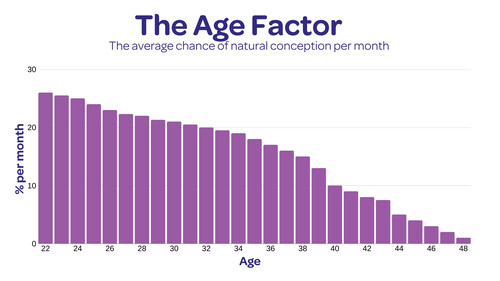Age & Fertility
How Does Age Affect Fertility in Women?
As women get older, fewer healthy eggs are produced each year, and the likelihood of conceiving declines. Age is the major cause of fertility problems in women, as many couples delay having children.
Age and Fertility
By the age of 36, your chance of conceiving naturally is half of what it was when you were 20. By the time you turn 41, your chance is just 5%.
Hence, if you are aged over 35 and have not fallen pregnant within six months of trying, we recommend that you seek medical advice. If you are under 35, you can wait up to 12 months before seeking help from a fertility specialist. If you have any known conditions, such as endometriosis, PCOS or male fertility issues, we recommend seeing a fertility specialist sooner rather than later.
Does Age Increase the Risk of Miscarriage?
Unfortunately, a woman’s age also increases her risk of miscarriage. The cell division process that occurs during ovulation may become abnormal and distribute unequal amounts of genetic material – meaning there is both a greater risk of miscarriage and of giving birth to a child with a genetic variation.
